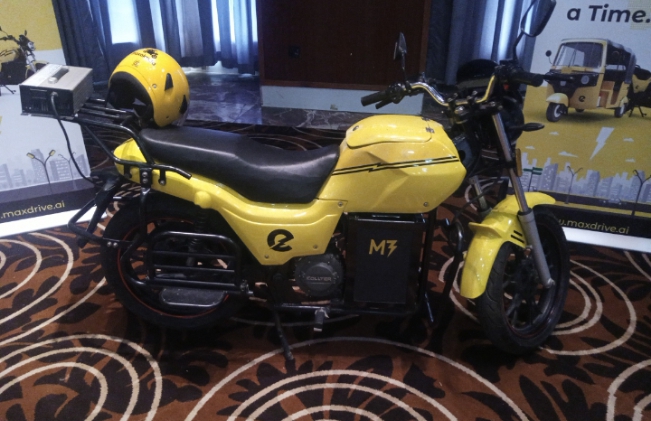Nigerian startup, Egoras Technology, has announced plans to roll out blockchain-powered electric vehicle charging stations in the second quarter of the year.
The Chief Executive Officer at Egoras, Ugoji Harry, confirmed this development to Saturday PUNCH on a telephone call.
He said that it would leverage Egoras’ cutting-edge Egochain technology to incentivise station ownership and foster the expansion of the Egostation network.
The Egoras CEO stated, “We are excited to introduce Egostation as a game-changer in EV charging technology. By leveraging the power of blockchain through our proprietary Egochain, we are not only revolutionising the EV charging experience but also incentivising the widespread adoption of electric vehicles across the country.”
He said the integration of its blockchain, Egochain, into Egostation, represented a paradigm shift in the electric vehicle charging landscape.
According to Harry, as more vehicles utilise Egostation for charging, station owners earn rewards in the form of $EGAX block tokens, creating a mutually beneficial system that encourages network growth and rewards those who contribute to its success.
“By incentivising station ownership and rewarding participation, we are driving the widespread adoption of EVs while simultaneously advancing Nigeria’s EV infrastructure,” he noted.
The firm said in a statement that Egostation would debut on June 8 in Port Harcourt, adding that the innovative charging infrastructure was poised to reshape the future of sustainable transportation in the region.
Last week, it announced plans to launch its made-in-Nigeria electric vehicle, APEX 28, in April, manufactured at Egoras’ factory in Port Harcourt.
According to the startup, Egostation’s cutting-edge Level 3 DC fast charging system enables rapid charging, with the capability to charge an electric vehicle up to 80 per cent within just 20 minutes, making it an ideal solution for the dynamic needs of modern EV owners.
“The level 3 charging stations, like Egostation, are equipped with DC fast chargers. Compared to traditional Level 2 AC chargers, DC fast chargers deliver significantly faster charging times,” it enunciated.
The firm added that this was because DC chargers bypass the car’s onboard AC/DC converter, delivering direct current to the battery for a more efficient and rapid charging process.
On potential partnerships, the company noted that as it continued to pioneer advancements in the EV sector, potential partners were encouraged to seize the opportunity to establish charging stations nationwide, contributing to the expansion of Nigeria’s EV infrastructure.
It reiterated that it was committed to sustainability that extends beyond its charging stations.
“Our fleet of electric vehicles and charging station terminals will be seamlessly integrated into the Egochain, ensuring enhanced security, transparency, and efficiency,” Egoras noted.
This article was originally published by a punchng.com . Read the Original article here. .

